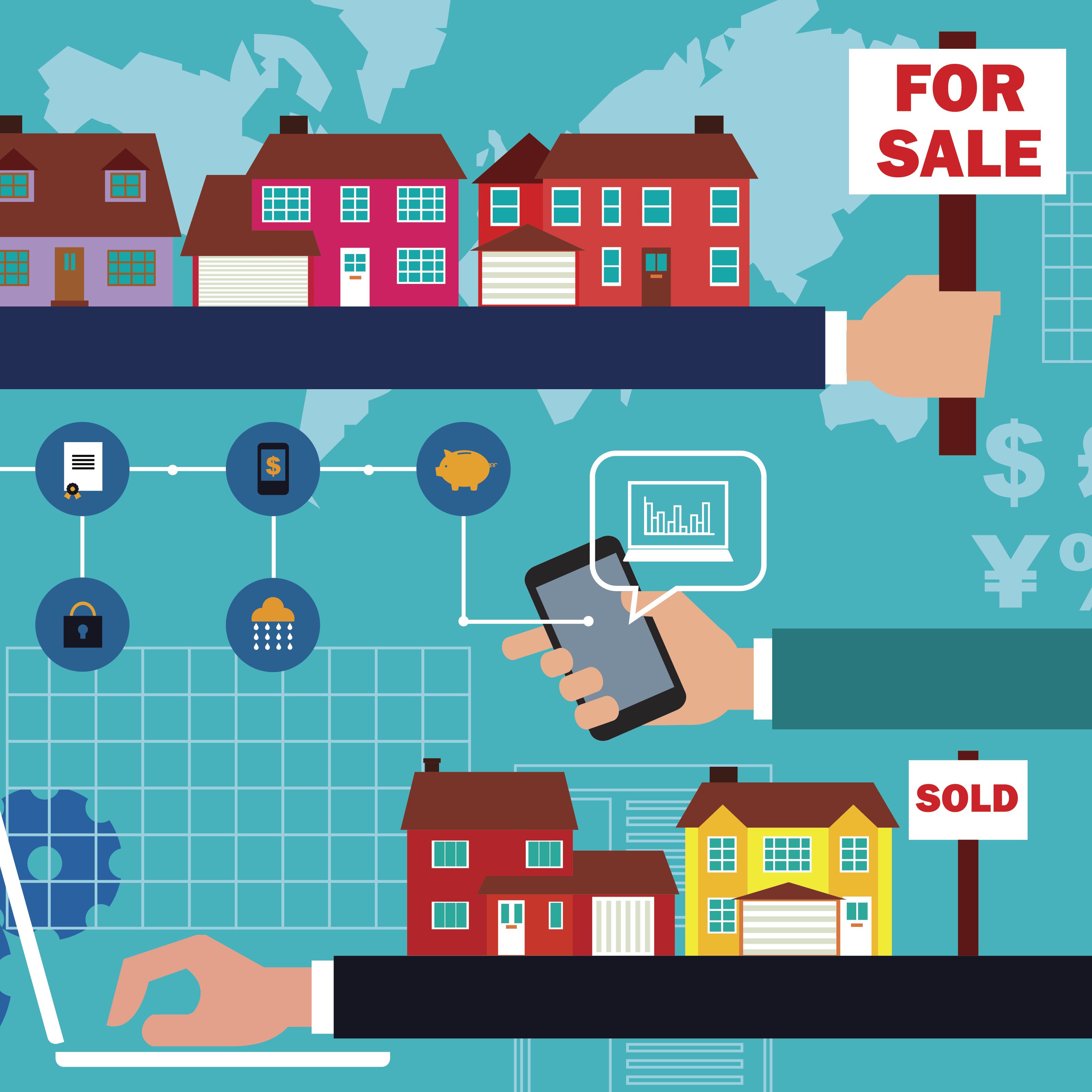Much about the COVID-19 pandemic is still maddeningly unclear and, seemingly, the takeaway is that the germ episode will upend the majority of industries; the property sector is no exception to this general trend. Instead, at a time when a third of the world’s population is in hibernation, technology is now taking center stage as a facilitator, which encourages innovative solutions in the real estate arena.
Since the start of the crisis, realtors have been forced to be like chameleons in response to the situation to attempt to keep transactions moving. Thanks to guidelines for social distancing and mandatory closures, technology finally seeped into the brick-and-mortar setup, which not long ago engaged with tech interventions only in matters related to planning and design. Nowadays, virtual selling is a game-changer for providing ways for buyers to continue their property hunt from the confines of their home by giving a sneak peek into real estate units, hence presenting a fair idea of the premises to judge the size and dimensions of all spaces.
Speaking of the local scene, Sixth of October Development and Investment Company (SODIC), IGI Real Estate, and Coldwell Banker Egypt are among the first runner-ups to jump on the digital bandwagon to boost sales and shake up demand for Egyptian real estate during this hard time, not without challenges such as technology illiteracy within the country.
In that sense, Invest-Gate reaches out to the above market leaders to discuss the business benefits from virtual sales, in an attempt to set out ways that imbibe technological advancements to bring about an evolution in the realty space, particularly in terms of revenue streams and sales volume.
Virtual But Now Vital
 Owing to the virus outbreak, what seemed like a far-fetched dream for realtors will come in place. As touchless technology emerges to become the new normal in the wake of COVID-19, Egypt stands as a typical example of engaging in the virtual world.
Owing to the virus outbreak, what seemed like a far-fetched dream for realtors will come in place. As touchless technology emerges to become the new normal in the wake of COVID-19, Egypt stands as a typical example of engaging in the virtual world.
In early April, SODIC kicked off the digital selling concept via its official Facebook page, stating, “For the first time in Egypt, SODIC’s virtual sales will introduce you to a community that is for the young at heart at VYE, New Zayed, with townhouses starting at EGP 4 mn.”
SODIC officially tells Invest-Gate, “We were the first real estate developer to roll this out. We pride ourselves on being an innovative company that is always embarking on new ways to advance the business and online sales is one of many customer-focused initiatives we are working on.”
“Sales are gaining momentum and will take time to achieve the platform’s full potential. Early adopters have started taking to it. However, culture changes take time and people will slowly shift to making bigger purchases online,” the Egyptian developer continues.
Commenting on the move, Mohamed El Said, property consultant at SODIC, tells Invest-Gate that virtual sales have highly contributed to an increase in the company’s transactions despite the current emergency situation. He elaborates, “With Coronavirus-driven social distancing, this digital strategy proved to be remarkably practical and fruitful.”
El Said goes on to explain how SODIC uses digital technology to enhance virtually every aspect of the sales process and elucidates, “To start off, as realtors, we brief prospective clients about this new approach. Through online meeting websites and teleconference solutions such as Zoom, I work closely with buyers to orchestrate virtual open houses.”
Nevertheless, Coldwell Banker is also ushering in a new era of virtual home showings. Dina Garas, Coldwell Banker marketing director, further highlights, “It was essential to direct our efforts toward the digital realm. For our first-ever online event, where virtual sales were initially introduced, we marked a grand success for being able to attract at least 325 potential clients in five days only.”
Aiming to capitalize on such a move, Coldwell Banker made good use of several real estate online marketing solutions to promote its first-of-its-kind virtual event, push this new technology forward, and most importantly, encourage potential leads to opt-in. After all, the property provider plunged into user-generated ads, customized push notifications, email newsletters, SMS campaigns, among others.
“We also created an animated video to invite people to join the virtual conference, in addition to demonstrating ways of effective communication during the event, be it live chats or audio/video calls. Moreover, we coordinated with real estate developers to offer flexible payment methods and provide digital home buying consultations, besides allowing prospective customers to pay upfronts online.”
Likewise, IGI Real Estate uncovered in early May the significance of its new virtual tour concept. According to the company, the platform is “more than just an online sales center.” Instead, it is a virtual showroom that is available through the company’s website for clients to enjoy a fully-immersive virtual walkthrough with exclusive offers.
Additionally, the website also allows clients to hold live chats with sales representatives, together with an online reservation service for a seamless house deal, IGI Real Estate said in a previous press release.
Desperate Sellers, Nervous Buyers
 For now, in Egypt, virtual selling is still up in the air and local real estate firms are still trying to turn the stumbling blocks facing them into stepping stones. For instance, El Said draws attention to one main challenge that has stymied SODIC’s wider adoption of online sales, which is the general public’s lack of technological know-how.
For now, in Egypt, virtual selling is still up in the air and local real estate firms are still trying to turn the stumbling blocks facing them into stepping stones. For instance, El Said draws attention to one main challenge that has stymied SODIC’s wider adoption of online sales, which is the general public’s lack of technological know-how.
The property consultant underscores, “We sometimes come across clients, who cannot use digital platforms and do not even know how it works. Therefore, it is often difficult for those buyers to purchase property online, let alone ones with high price tags.”
In the same vein, Coldwell Banker’s Garas shares another hurdle to pivoting to virtual selling in the North African country, which has a particularly high barrier to overcome: Resistance to change.
“Building meaningful professional relationships and convincing clients to book real estate units is more difficult to do in the virtual world, but it is not impossible and understandable in light of the current circumstances. However, the process gets much easier once buyers adapt to technology and digital grip is more predominantly used in a business context,” the deputy marketing director adds.
A New Normal
Even if the stay-at-home regulations are relaxed soon, it could be some time before property agents see large numbers of in-person viewings once again. Interestingly, real estate players can make the most of this phase by establishing a brand recall through virtual tools in the minds of prospective buyers.
In the post-Coronavirus era, the possibility of facilitating virtual home sales is probable with the adoption of these technological advancements, which are playing a significant role in keeping the ball rolling for the sector. Though technology would not completely replace human interaction in the real estate industry, this would surely help in enhancing the overall customer experience.